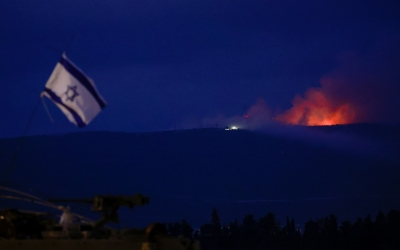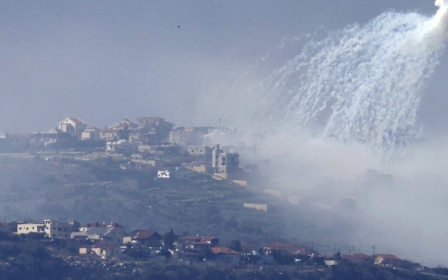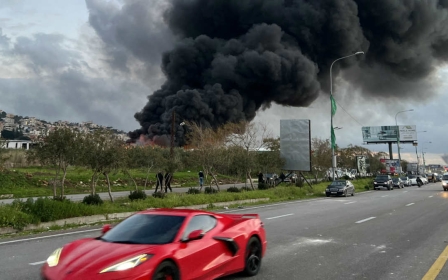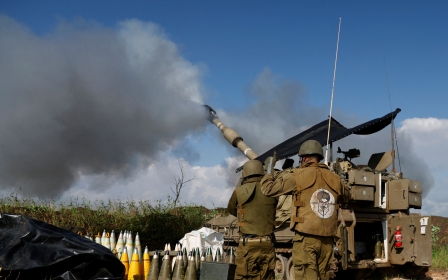Israel warns fighting along Lebanese border is reaching 'critical point'
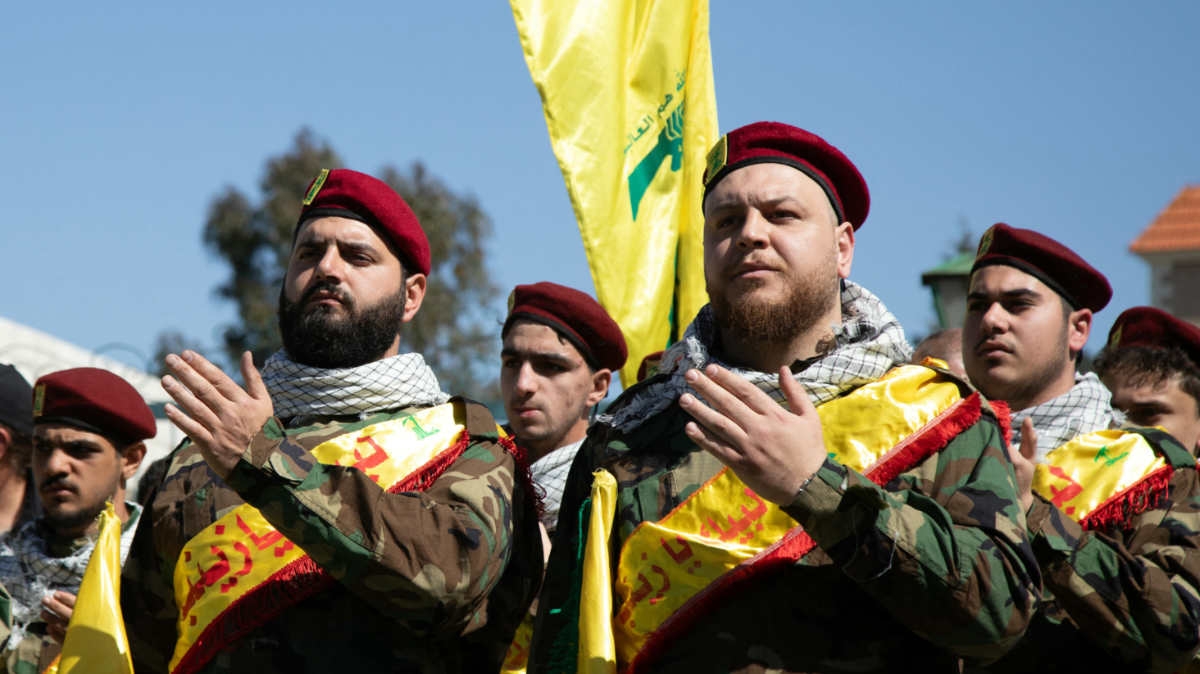
Israel's defence minister warned on Tuesday that fighting with Hezbollah along Israel's border with Lebanon was nearing "a critical point", in a warning that Israel was considering upping its military actions on its northern border.
Israeli Defence Minister Yoav Gallant's statement came shortly after meeting US President Joe Biden's key envoy to Lebanon, Amos Hochstein in Tel Aviv, underlining the uphill battle the US faces as it tries to reduce tensions between Israel and the Iran-backed group.
"We are committed to the diplomatic process. However, Hezbollah's aggression is bringing us closer to a critical point in the decision-making regarding our military activities in Lebanon," Gallant told Hochstein, according to his office.
Hezbollah and Israel have exchanged near daily fire since 7 October. The fighting has displaced over 86,000 Lebanese and anywhere from 60,000-96,000 Israelis from their homes.
The fighting has killed at least 299 people in Lebanon, most of them Hezbollah fighters but also 49 civilians, according to an AFP tally. In Israel, at least 10 soldiers and seven civilians have been killed.
New MEE newsletter: Jerusalem Dispatch
Sign up to get the latest insights and analysis on Israel-Palestine, alongside Turkey Unpacked and other MEE newsletters
Hochstein travelled to Beirut on Monday to meet officials close to Hezbollah, but fighting on the border continued to rage as the US envoy conducted a quick round of shuttle diplomacy.
Also on Monday, an Indian worker was killed and two other Indian nationals seriously wounded by an anti-tank missile attack fired by Hezbollah into northern Israel.
On Tuesday, Lebanon's national news agency said three people were killed in an Israeli strike on a house in the southern Lebanese border village of Hula. Three paramedics affiliated with Hezbollah were also killed in a strike on Monday, the group said.
Hezbollah later said its fighters targeted Gesher Haziv near northern Israel's coastal city of Nahariya "with batches of Katyusha rockets" in retaliation, while the Israeli military said several launches were intercepted, reporting no wounded.
'Blue line'
Hochstein's trip carries weight because he spearheaded previous negotiations between Lebanon and Israel.
He brokered a historic maritime border demarcation deal in 2022, which required Hezbollah's approval. The US considers the Iran-backed group a terrorist organisation and its intermediaries with Hezbollah are Lebanon's deputy parliament speaker Elias Bou Saab and politicians belonging to the country's other main Shia political party, Amal.
The Biden administration is pushing a plan that would see Hezbollah halt its fire into Israel and withdraw some of its forces north of the blue line, demarcated by the United Nations in 2000 after Israeli troops pulled out of southern Lebanon.
Hochstein hopes to replicate the 2022 maritime deal he crafted and officially demarcate the border between Lebanon and Israel.
But that would require Hezbollah signing off on any agreement to resolve 13 disputed points along Lebanon and Israel's border, in addition to settling a dispute over Shebaa Farms and Kfarchouba Hills, which are occupied by Israel, claimed by Lebanon, and internationally considered part of Syria.
Also critical in the negotiations would be restoring Lebanon's control over the northern part of Ghajar city, which Israel constructed a wall around in July. The northern part of the city is on the Lebanese side of the blue line drawn by the UN in 2000.
'Complete Hezbollah withdrawal'
Of more immediate concern to Israel is to see Hezbollah's elite Radwan force, which has an estimated 2,500 fighters, move north of the Litani River, about 30km from the border, as mandated by UN resolution 1701. Israel has said it would accomplish this either by a diplomatic solution or if a solution fails, a major military offensive.
Hochstein's rare trip reflects the Biden administration's concern about a full second front opening along Israel's northern border, as talks to reach a truce between Israel and Hamas run past Biden's own expected deadline of Monday.
But Hochstein said on Monday that a truce in Gaza may not directly translate into a ceasefire along Israel's northern border, with Israeli officials saying publicly they would continue attacking Hezbollah until the group pulls its forces back.
"Even if there is a temporary truce in the south, we will increase the fire in the north independently, and we will continue until the complete withdrawal of Hezbollah and the return of the residents to their homes," Gallant said on X last month.
Middle East Eye delivers independent and unrivalled coverage and analysis of the Middle East, North Africa and beyond. To learn more about republishing this content and the associated fees, please fill out this form. More about MEE can be found here.


